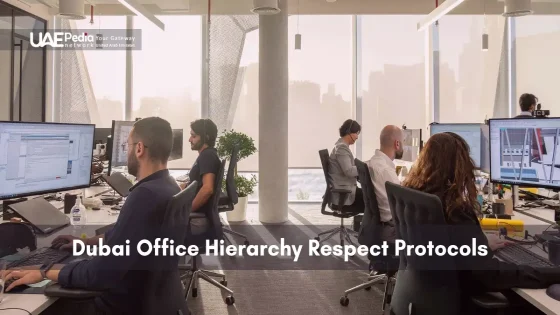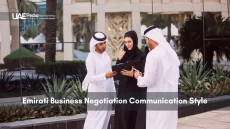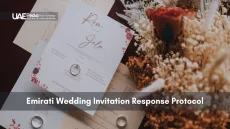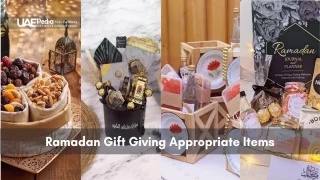Did you know that offering coffee in Emirati culture isn’t just a drink—it’s a centuries-old language of respect? From the aroma of cardamom-infused gahwa to the precise gestures that accompany every pour, hospitality here is an art form. And it’s alive today, blending desert-rooted traditions with modern gatherings.
This guide walks you through the unspoken rules that turn a simple gesture into a meaningful connection. Think of it as your backstage pass to understanding how warmth is served—one tiny cup at a time. Whether you’re stepping into a majlis or hosting friends, these customs bridge heritage and contemporary life.
We’ll explore why the right hand matters when serving, how coffee rituals reflect a host’s pride, and what makes Arabic coffee the heartbeat of Emirati generosity. You’ll also discover how today’s hosts honor the past while adapting to global tastes—like pairing dates with espresso shots!
Key takeaways:
- Coffee isn’t just a drink—it’s a cultural handshake steeped in history.
- Modern hospitality blends tradition with innovation (yes, saffron lattes exist).
- Serving etiquette—from hand gestures to refill rhythms—speaks louder than words.
Understanding Emirati Hospitality Traditions
Picture a desert traveler stumbling upon a Bedouin tent centuries ago—not just offered shade, but welcomed like family. This instinct to protect and nourish strangers shaped Emirati cultural heritage, turning survival into a sacred code of kindness. Harsh sands taught communities that generosity wasn’t optional—it was life itself.
Historical Roots of Generosity
Before skyscrapers, survival here depended on shared resources. Offering water, dates, or shelter to travelers wasn’t just polite—it wove trust across tribes. Stories of hosts giving their last camel’s milk to guests still echo in today’s majlis gatherings. These spaces, designed for open conversation, became symbols of unity where leaders and neighbors solved problems over coffee.
Modern-Day Practices
Today’s cities blend tradition with glass towers, but the heartbeat remains. Families still prioritize communal meals, swapping desert tales between smartphone snaps. Young professionals infuse heritage into business meetings—serving gahwa in porcelain cups while sealing deals. Yet the core hasn’t changed: every gesture whispers, “You’re safe here.”
From elders preserving recipes to teens sharing viral hospitality hacks, Emirati culture thrives by honoring its roots. It’s not about clinging to the past—it’s weaving history into tomorrow’s welcome mat.
The Significance of Arabic Coffee in UAE Customs
Imagine a steaming brass pot pouring liquid gold into tiny cups—this is Arabic coffee, a 500-year-old handshake of honor. More than caffeine, it’s a scripted performance where every gesture whispers ancestral wisdom. Bedouin elders once traded stories over these bitter-sweet sips, turning survival into ceremony beneath endless stars.
Gahwa and Dates: Symbols of Generosity
That first sip of gahwa—cardamom-kissed and amber-hued—isn’t just flavor. It’s the host saying, “My home is yours.” Paired with plump dates, this duo solves desert math: sweetness balances coffee’s bite, just as generosity tempers life’s harshness. Elders still teach children to arrange dates in odd numbers—a nod to traditions older than the Emirates’ union.
The Role of the Dallah in Serving
Spot the curved spout of the dallah? This isn’t your grandma’s teapot. Its arched handle mirrors palm fronds sheltering travelers, while the long neck ensures coffee flows like poetry. Pouring from shoulder height isn’t showmanship—it’s respect frozen in motion. Modern cafes might use espresso machines, but weddings and diplomatic meetings still demand this gleaming symbol.
Three shakes of the cup decline refills here. But why? Because in desert logic, excess drowns connection. Each ritual—from bean selection to serving order—stitches past to present. You’re not drinking coffee. You’re sipping history.
Step-by-Step Guide to Welcoming UAE Guests
Ever wondered how a simple handshake can set the tone for an entire evening? Mastering Emirati hospitality starts with structured warmth—think of it as a cultural handshake that begins at the doorstep and flows through every gesture.
Greeting Etiquette: Warm Welcomes
First: Meet arrivals with a firm handshake and direct eye contact. Men typically initiate greetings, often placing their left hand over their heart—a silent “I come in peace” inherited from desert diplomacy. Keep physical closeness respectful (about an arm’s length) to balance friendliness and personal space.
Next: Lead visitors to seating areas while exchanging light conversation. Avoid rushing—this isn’t a transaction, but relationship-building. Pro tip: Compliment the gathering space first. It shows appreciation for the effort put into hosting.
Using the Right Hand for Serving
Why the right-hand rule? Historically tied to hygiene practices, it’s now a universal sign of respect. When passing dates or pouring gahwa, use your dominant hand like it’s choreographed:
| Aspect | Traditional | Modern Adaptation |
|---|---|---|
| Greeting Style | Full palm handshake | Handshake + shoulder touch (close acquaintances) |
| Serving Hand | Right hand only | Right hand emphasized, left supports cup base |
| Refill Signals | Subtle cup shake | Gentle finger wave if cup isn’t empty |
The host must pour coffee into cups three-quarters full—overflow implies haste. Notice a guest swirling their cup? That’s the desert’s “no more, thank you” Morse code. Men usually manage service, creating a seamless flow that lets others focus on conversation.
Remember: These aren’t rigid rules, but love letters to heritage. Get the gestures right, and you’re not just serving coffee—you’re brewing trust.
Mastering UAE Guest Refreshment Offering Customs
Learning these traditions is like picking up a dance—every step matters, but joy comes from feeling the rhythm. Start by practicing with friends: serve mock gahwa using a water pitcher to nail wrist angles. Record yourself—does your pour look rushed or graceful? Small adjustments build muscle memory for real gatherings.
Not all customs work the same. Family recipes might swap cardamom for saffron, while urban hosts often use modern trays alongside brass dallah. Observe how elders prioritize serving order (right to left) versus younger generations focusing on conversation flow. Both honor hospitality, just with different accents.
| Focus Area | Traditional Approach | Modern Twist |
|---|---|---|
| Practice | Shadowing family hosts | Virtual etiquette workshops |
| Tools | Hand-polished dallah | Heat-resistant glass pitchers |
| Hosting Style | Formal three-pour rule | Freestyle refills with eye contact |
New hosts often stumble by overcomparing their setup to Instagram-perfect spreads. Remember: warmth beats perfection. One Dubai chef suggests, “Burn your first batch of coffee beans—it teaches humility better than any tutorial.”
Blend old and new by pairing heirloom cups with personalized date fillings (dark chocolate stuffing wins crowds). Track guest reactions—do they light up at story-sharing or tech-assisted serving? Adapt while keeping the culture‘s heartbeat steady.
Mistakes? They’re proof you’re trying. Spill coffee? Laugh it off—hospitality thrives on genuine effort, not flawless execution. Every gathering becomes a chance to deepen your experience and rewrite traditions through shared moments.
Cultural Etiquette and Table Manners in Emirati Homes
Walking into an Emirati home isn’t just crossing a threshold—it’s stepping into a living museum of warmth. Every gesture, from how you dress to where you sit, becomes part of a silent conversation about respect and belonging. Let’s decode the unspoken rules that turn a meal into a memory.
Proper Dress and Respectful Interaction
Clothing here whispers before you speak. Opt for modest attire—flowing sleeves, knee-length hems, and neutral tones work best. Bright colors? Save them for festivals. Men should avoid shorts; tailored pants show you’ve made an effort. Think of your outfit as a thank-you note to the family welcoming you.
At meals, watch how hands become utensils. Use your right palm to scoop rice or pass dishes—left hands stay discreetly in laps. Elders eat first, a hierarchy as clear as the culture’s desert horizons. Compliment the food lavishly, but never ask for pork or alcohol. One chef’s secret: “Leave a bite on your plate. It tells hosts they’ve generously provided enough.”
Conversation thrives on gentle curiosity. Ask about heritage recipes before diving into politics. Laughter? Encouraged. Pointing feet? Avoided. For deeper insights, key guidelines break down these nuances beautifully.
Remember: Shared meals here aren’t about eating—they’re edible handshakes. Your manners don’t need perfection, just genuine intent. Master these rhythms, and you’re not just a visitor. You become part of the home’s story.
The Role of the Majlis in Emirati Hospitality
Have you ever entered a room that feels like a living embrace? That’s the majlis—a space where whispers of ancient desert wisdom meet modern laughter. More than a seating area, it’s the beating heart of hospitality, where bonds form over steaming cups and shared stories.
Plush floor cushions circle the space like open arms, inviting guests to sink into conversation. Traditional woven mats underfoot echo Bedouin tents, while wall carvings showcase ancestral craftsmanship. Here, the host sits closest to the entrance—a subtle gesture meaning “I guard your comfort.”
Modern culture reshapes these gatherings without erasing their soul. Tech entrepreneurs debate startups beside elders reciting poetry. One Dubai designer laughs: “My grandfather’s coffee pot now charges my phone—both keep connections alive.” The rhythm remains: serve, listen, connect.
- Community glue: Disputes get resolved over dates here, weddings planned between refills
- Silent language: Seat placement hints at status, while leaning forward shows engagement
- Desert DNA: Open layouts mirror endless sands—no walls to ideas or newcomers
Nightfall transforms the majlis best. As constellations mirror ceiling lanterns, strangers become people who’ve shared your bread. A banker turned storyteller muses: “We don’t invite friends here. We make friends here.” That’s the magic—every visit writes a new part of your story.
Exploring Coffee Cups and Serving Rituals
What if every coffee cup told a story older than the skyscrapers dotting Dubai’s skyline? The vessels holding arabic coffee carry generations of craftsmanship—and their curves hold secrets to perfect hospitality.
Different Finjan Varieties
Meet the finjan: not just cups, but palm-sized canvases of culture. Traditional ones curve like desert dunes, made from brass or clay to retain heat. Modern versions might use sleek ceramic, but all share three traits:
| Feature | Traditional | Contemporary |
|---|---|---|
| Material | Hand-hammered brass | Glazed ceramic |
| Size | Fits three sips max | Slightly larger for casual settings |
| Decoration | Geometric etchings | Minimalist gold rims |
An Emirati potter once joked: “Our cups shrink so conversations grow.” The smaller the vessel, the more refills—and chances to connect.
The Art of Pouring Coffee
Watch a master’s hand tilt the dallah. The spout hovers an inch above the cup, streaming liquid like warm honey. Wrists rotate mid-pour to aerate the brew—a trick Bedouins used to cool scalding coffee under stars.
Guests speak through gestures here. A quick swirl means “I’m satisfied,” while holding the cup steady invites refills. Miss the sign? You might drown a cup in generosity. Hosts learn to read body language as fluently as recipes.
These rituals turn service into shared poetry. Whether using heirloom brass or IKEA mugs, the heart remains: every pour says “you belong.” Try it at home—start high, pour slow, and let the steam write new stories.
Gestures and Signals in Coffee Service
What if your coffee cup could talk? In Emirati gatherings, it does—through subtle tilts, shakes, and holds that speak volumes. This silent vocabulary turns service into a collaborative dance between those pouring and those sipping.
Shaking the Cup: Accepting or Declining Refills
A gentle wrist flick isn’t just a gesture—it’s a whole conversation. Three light shakes mean “I’m satisfied, thank you,” while keeping the cup steady invites another round. Miss these cues? You might accidentally flood a cup or leave someone wanting.
- The Lift-and-Pause: Raising the cup slightly after a sip signals readiness for more—like hitting “play” on refill mode.
- Palm Over Cup: Covering it with your hand shouts “Stop!” without uttering a word.
- Clockwise Pass: Returning the cup to the tray with the handle facing the host means “I’ll take seconds when you’re ready.”
These signals aren’t one-way. Hosts watch cup angles like detectives—a 45-degree tilt means “I’m nursing this sip,” while an empty cup placed centrally begs for attention. One Abu Dhabi café owner laughs: “We train new staff to read cups like tea leaves—it’s faster than asking!”
Why does this matter? Smooth service hinges on this unspoken teamwork. Imagine a business meeting where clinking cups replace awkward interruptions—efficiency meets elegance. Master these moves, and you’re not just sharing coffee. You’re conducting a silent symphony of hospitality.
Incorporating Traditional Food and Refreshments
Imagine a symphony where every dish plays its note—spiced rice hums bass, tender lamb sings melody, and dates chime sweetness. This is Emirati hospitality’s culinary orchestra. Meals here aren’t just sustenance—they’re edible stories of survival and celebration.
Start with Machboos, golden rice layered with saffron and slow-cooked meat. Its aroma alone whispers heritage—a recipe perfected through desert nights and family feasts. Pair it with Harees, a wheat-and-chicken porridge that soothes like a grandmother’s lullaby. These dishes say, “Stay. You’re part of us now.”
Dates aren’t mere snacks. Plump Khalas varieties balance coffee’s bitterness, while amber Lulu types sweeten conversations. Sip water between bites and sips—a Bedouin trick to cleanse palates and honor ancient trade routes. One chef confides: “We serve dates first so guests taste sweetness before life’s spices.”
Modern hosts blend old and new:
- Serve Machboos in mini clay pots with quinoa sides
- Offer date syrup mocktails alongside Arabic coffee
- Use communal platters to keep sharing central
Notice how hands reach across the table? That’s generosity in motion—no individual plates here. Every scoop says trust. Every refill whispers care. Whether in a skyscraper penthouse or beach picnic, these flavors stitch past to present.
Pro tip: Leave space for seconds. Declining food? Gently praise its perfection first. Here, meals aren’t eaten—they’re lived. And you’re always invited to the feast.
Cross-Cultural Communication for International Guests
Ever felt a conversation pause mid-air because your smile didn’t translate? Emirati hospitality thrives on unspoken connections—where a raised eyebrow or cup tilt speaks louder than phrases. Let’s bridge those gaps with cultural compass points every traveler needs.
Bridging Language and Cultural Differences
Start with “Salaam aleikum” (Peace be upon you)—a greeting that opens doors faster than Google Translate. Respond with “Wa aleikum as-salaam” to complete the exchange. These phrases aren’t formalities—they’re social handshakes saying “I respect your world.”
| Situation | Do | Avoid |
|---|---|---|
| Greetings | Handshake + smile | Hugs (unless initiated) |
| Conversations | Ask about family or heritage | Political debates |
| Dining | Accept second helpings | Left hand for passing dishes |
Notice how hosts linger over Arabic coffee refills? That’s your cue to slow down. Rushing signals disinterest. Instead, mirror their pace—sip slowly, nod often. One diplomat shared: “The best deals I’ve made started with three cups and zero contracts.”
Need help decoding signals? Our travel tips break down everything from dress codes to gift-giving taboos. Remember: A misplaced joke here isn’t rude—it’s just lost in translation. Laugh together, and you’ve found common ground.
- Golden rule: Compliment the food—twice
- Silent ally: Remove sunglasses during greetings
- Universal language: Bring dates or sweets when invited
Most misunderstandings melt over shared Arabic coffee. That tiny cup? It’s not caffeine—it’s a peace pipe. Sip it like you’re drinking history, and watch barriers dissolve. After all, respect needs no dictionary.
Hosting Special Occasions with Emirati Charm
What transforms a wedding into a time capsule of joy that echoes across generations? Emirati celebrations weave traditions into every detail—from the first sip of Arabic coffee to the final dance. These events aren’t just parties; they’re living museums where hospitality becomes a shared language.
Weddings, Reconciliation, and Gatherings
At a Dubai wedding last spring, the groom’s father poured the inaugural cup—a 200-year-old custom signaling unity. Three sips sealed approval: bitter for life’s challenges, sweet for shared victories, and aromatic for lasting bonds. Multiple refills? They’re not about caffeine—they’re chapters in a story where elders and youth connect.
| Element | Traditional Role | Modern Spin |
|---|---|---|
| Arabic Coffee | Symbol of truce between tribes | Served with espresso shots for international guests |
| Host Duties | Men orchestrate service flow | Gender-mixed teams with designated coordinators |
| Gift Exchange | Dates wrapped in palm leaves | Custom date boxes with QR-coded heritage stories |
Reconciliation meals follow a strict script: bitter coffee first to acknowledge pain, honey-drenched luqaimat dumplings last to sweeten resolutions. One sheikh’s advice: “The cup that starts hard conversations must be the same one that ends them.”
- Week-long wedding feasts feature rotating family hosts
- Men present ceremonial daggers while women arrange floral displays
- Hybrid venues pair Bedouin tents with augmented reality projections
These traditions aren’t frozen in time—they’re bridges. A Sharjah bride recently blended her French heritage by serving gahwa in vintage teacups. The result? A culture mashup that had grandparents and influencers equally captivated.
Your turn: Next gathering, try a host ritual—serve coffee with one hand while sharing its origin story. Watch how a simple pour becomes an experience that outlasts the steam.
Practical Tips for First-Time UAE Hosts
Hosting your first gathering? Think of it as learning a new dance—simple steps create graceful moments. Start with the basics: your right hand becomes your hospitality wand. Use it to pass dates, pour drinks, and gesture warmly. Left hands? Keep them relaxed by your side—no magic needed there.
The host must lead with eye contact and open palms. Greet visitors at the door with a firm handshake, then guide them to seating. Avoid hovering—offer refreshments within three minutes of arrival. One Dubai event planner advises: “Practice pouring water into cups from shoulder height. It builds muscle memory for graceful gahwa service.”
| Do | Don’t |
|---|---|
| Serve dates first on communal plates | Use left hand for food passing |
| Refill cups three-quarters full | Let cups overflow (signals rush) |
| Read cup tilts for refill cues | Ask verbally if guests want more |
Blend tradition with your style effortlessly. Pair heirloom coffee pots with minimalist coasters. Swap brass trays for sleek slates—but keep dates center stage. First-time jitters? Do a trial run with friends. Record your serving flow to spot rushed movements or missed cues.
Remember: Warmth outshines perfection. Spill a drop? Smile and say “It’s rain for good luck!” Your culture-blending efforts become part of the experience. As one Abu Dhabi grandmother says: “Guests taste effort before they taste coffee.”
Preserving and Celebrating Cultural Heritage in Hospitality
Threads of tradition and innovation weave through every hospitality gesture here—like a palm-frond basket holding tomorrow’s possibilities. Families and businesses alike face a delicate dance: honoring ancestral wisdom while embracing 21st-century rhythms. The secret? Treat heritage as a verb, not a museum exhibit.
Breathing New Life Into Timeless Rituals
Young hosts reimagine rituals without erasing their soul. A Dubai café owner explains: “My grandmother’s coffee recipe now gets served in biodegradable cups—same warmth, smaller footprint.” Modern twists thrive when rooted in respect:
- Smart coffee pots track serving temperatures, preserving the dallah’s precision
- Virtual majlis gatherings blend video calls with traditional seating orders
- Fusion menus pair date syrup with avocado toast at brunch hotspots
| Tradition | Modern Adaptation |
|---|---|
| Hand-ground coffee beans | Artisan roasteries using local dates as sweeteners |
| Oral storytelling | Podcasts featuring elders’ tales alongside startup founder interviews |
Urban spaces prove culture evolves without fading. Rooftop restaurants in the city arrange floor cushions beside neon art—ancestral comfort meets metro-edge cool. Annual festivals like those detailed on uaepedia.net turn heritage into interactive play, inviting kids to grind spices via augmented reality.
True preservation happens in daily acts. A chef shares: “We replaced plastic date trays with woven palm holders—small changes stitch past into present.” Whether hosting in a high-rise home or desert camp, the goal remains: make every guest feel they’re part of a story that began centuries ago.
“Tradition isn’t a cage—it’s the wind beneath new ideas.”
Your turn: Next gathering, borrow one old-world gesture—maybe pass drinks right-handed or share a family recipe. Watch how these threads connect strangers into community. After all, hospitality survives not by staying frozen, but by flowing like coffee into fresh cups.
A Warm Send-Off for an Unforgettable Guest Experience
As the final cup is poured, the true art of hospitality reveals itself—not in grand gestures, but in the quiet poetry of departure. Every detail matters: the gentle rotation of an empty cup to signal contentment, the host’s palm resting briefly over yours during a handshake. These moments etch themselves into memory long after the last sip.
Close gatherings with the same intention they began. Offer a final pour from the dallah, three-quarters full, using your right hand. A light touch to the shoulder while walking visitors out mirrors the warmth of their arrival. It’s not about perfection—it’s about showing the generosity that turns strangers into friends.
Consider pairing traditional farewells with modern touches. After coffee rituals, some hosts now share QR codes linking to unique local experiences, blending heritage with personalized next steps. This balance honors traditions while celebrating today’s connected world.
Remember: the clink of cups fades, but how you say goodbye lingers. Whether hosting in a desert camp or city apartment, let every gesture whisper, “Return soon.” After all, the best visits don’t end—they simply pause between pours.
Gahwa (Arabic coffee) symbolizes generosity and connection. Served in a finjan cup from a dallah pot, it’s paired with dates to balance flavors—a ritual rooted in Bedouin traditions where sharing scarce resources deepened bonds.
Yes! Using the right hand to pour coffee or pass dishes shows respect. This practice ties to cultural beliefs about cleanliness and etiquette—left hands are reserved for personal hygiene.
The majlis—a traditional seating area—is where guests are welcomed. It’s designed for face-to-face connection, often with low cushions and aromatic incense, creating a space where stories flow as freely as the coffee.
Gently shake your empty finjan cup when offered a refill. This subtle gesture avoids interrupting conversation while honoring the host’s effort—no words needed!
Modesty matters. Opt for loose-fitting clothing that covers shoulders and knees. Women might bring a scarf for added cultural respect, especially in conservative households.
Dates’ natural sweetness complements Gahwa’s bitter notes. Historically, they provided quick energy in desert climates—today, they’re a delicious nod to heritage and practical hospitality.
Politely declining is acceptable if done warmly. Try phrases like “Shukran, I’m truly satisfied” while placing your hand over your heart—this shows gratitude while maintaining the spirit of generosity.
Many blend heritage with contemporary life—using designer finjans in sleek majlis spaces or hosting iftar gatherings with both Arabic coffee and latte art. The core values of warmth and inclusion remain unchanged.













